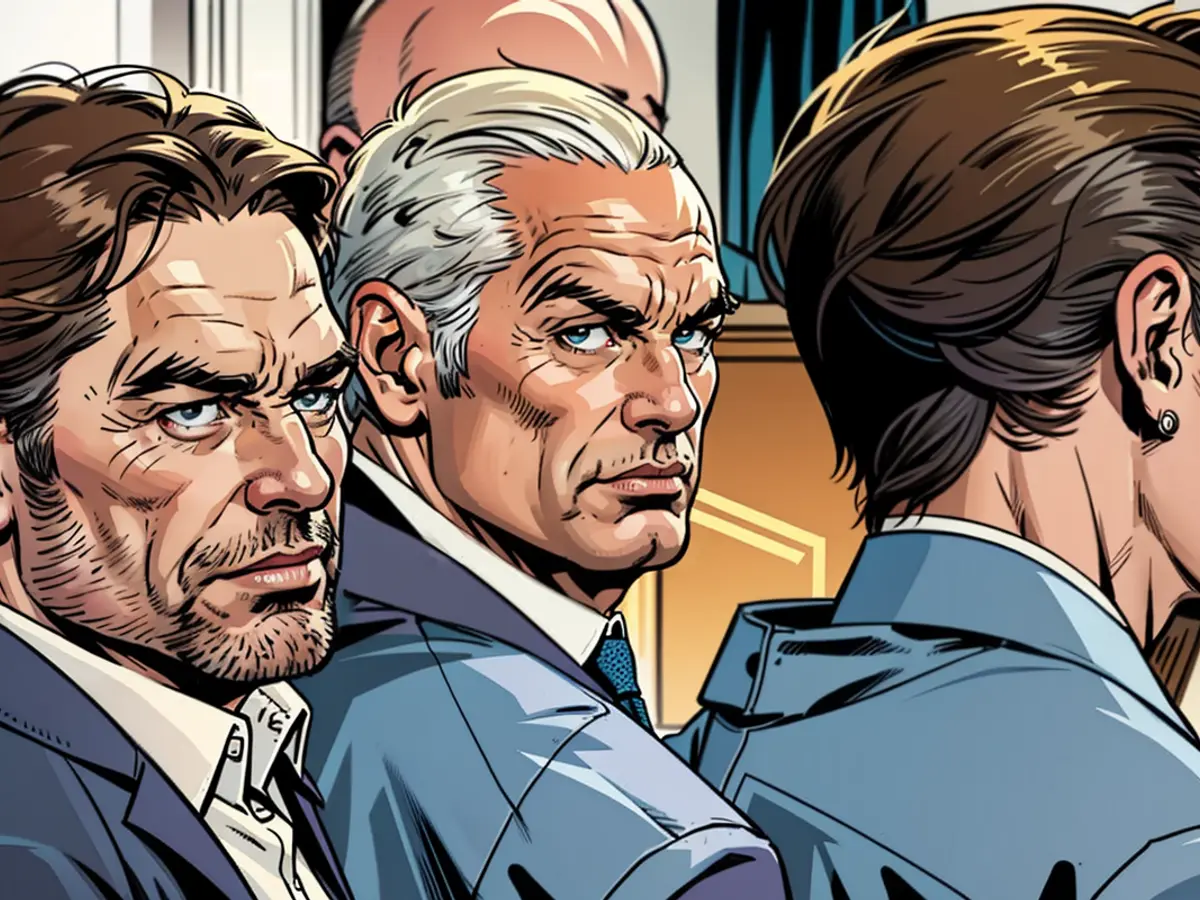Federal Government of Germany - Is the budget dispute starting at the front of the traffic light?
The traffic light coalition may have to fundamentally renegotiate its painstakingly achieved compromise on the 2025 federal budget. Two scientific assessments of planned projects have indicated that "further discussions within the federal government and within the framework of parliamentary consultations are necessary," the Federal Ministry of Finance said.
Finance Minister Christian Lindner (FDP) had commissioned the review because there were doubts about whether individual projects in the federal budget were constitutionally and economically sustainable. These projects were intended to reduce the financing gap of 17 billion euros by half, which still existed after the negotiations of the traffic light leaders. Otherwise, Lindner had warned, there would be blockades in the budget execution.
The Lindner ministry is now bringing savings in social spending into play. The assessments raised doubts about the projects. From the perspective of the Federal Ministry of Finance, negotiations on austerity measures must now be resumed. "Even measures to strengthen the accuracy of social spending, on which no political agreement has been reached so far, could reduce the need for action," it said in ministry circles.
The budget negotiators, Chancellor Olaf Scholz (SPD), Vice-Chancellor Robert Habeck (Greens), and Finance Minister Christian Lindner (FDP), had originally planned three measures that were supposed to bring in eight billion euros. These included loans to the railway and the motorway company, as well as billions from the KfW bank that were left over from the gas price brake. However, doubts about the plans had already arisen during the negotiations, so they were reviewed again from a constitutional and economic perspective.
Advisory board expresses "serious doubts"
The scientific advisory board, independent advisors to the Federal Ministry of Finance, and a legal opinion now warn of a constitutional breach. "The advisory board, in light of the debt brake, expresses serious doubts about all three named measures," the advisory board chairman wrote in a letter, which was first reported by the "Handelsblatt".
Billions from the gas price brake
The use of the approximately five billion euros originally earmarked for the gas price brake but not needed, which was already considered risky before the assessment, is now seen by the scientific advisory board as having "serious constitutional risks, as funds from emergency loans are used for the federal budget." This not only violates the debt brake in the Basic Law but also explicitly excludes their use for other purposes.
The legal opinion of Professor Johannes Hellermann from Bielefeld also sees serious constitutional risks. The funds should not be used to plug the financing gap, but only for debt repayment.
Loans to the railway and motorway company
The assessments of two other projects are less clear-cut. From the perspective of the advisory board, there could be problems if loans are granted to the railway and the motorway company instead of the planned subsidies. In some cases, loans to the motorway company might not even be considered a "financial transaction" and would therefore have to be included in the debt brake. This would not give the federal government any new financial leeway. Loans to the German railway could also be critical, but less for legal reasons and more due to the high level of debt of the state-owned company.
Hellermann considers a loan grant to Deutsche Bahn constitutionally permissible. A loan for financing investments of the Autobahn GmbH would only be beneficial if repayment is guaranteed. Since the Autobahn GmbH currently has no own revenues, this is questionable - or would require political decision-making. The Ministry of Finance does not consider this possible in time before the 2025 budget is passed.
What now?
The budget plans for the coming year still have a huge financing gap. The traffic light coalition hopes to bridge almost nine billion euros by the fact that ministries do not use all their allocated funds at the end of the year. This is common, as billions of euros remained unused in previous years. However, plugging a hole of 17 billion euros this way seems unrealistic. Lindner had already announced in the "Handelsblatt" that he would not pass a budget with such a hole.
The Minister of Finance had initially expressed doubts about the plans and attributed the proposals to the SPD-led Chancellery. They were considered a temporary solution anyway, as the traffic light parties could not agree on taking on new debt. Especially the SPD had advocated for declaring an exceptional emergency due to the Ukraine war and closing gaps in the budget through then permitted new loans. This demand could now come up again - although the Lindner Ministry is trying to suppress the debate. The option of suspending the debt brake by declaring an emergency is "not possible either constitutionally or economically," it was immediately emphasized in circles of the Ministry of Finance.
The Federal Ministry of Finance, in response to these concerns, is now advocating for negotiations on austerity measures. From the ministry's perspective, measures to enhance the accuracy of social spending could potentially reduce the need for action.
The scientific advisory board, acting as independent advisors to the BMF, has raised serious doubts about the use of billions from the gas price brake. They warn that using these funds for the federal budget could violate the debt brake and explicitly restrict their use to debt repayment.








